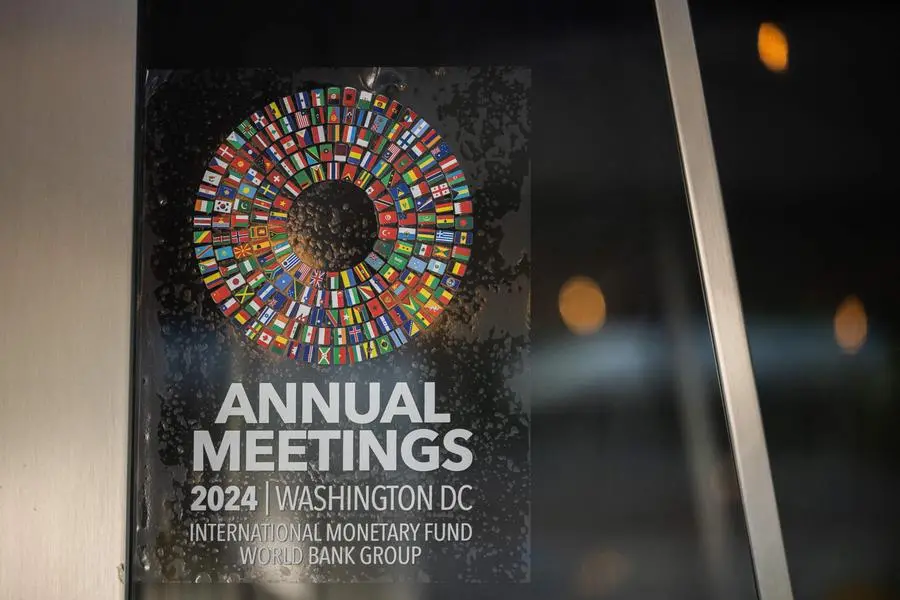PHOTO
WASHINGTON-- Representatives of public and private sectors, international organizations, civil society establishment as well academic mediums from all over the globe, are all heading to Washington between October 21-26 to take part in the annual World Bank and International Monetary Fund (IMF) meetings.
Taking a seat at the meetings will be Kuwait's Minister of Finance, State Minister for Economic and Investment Affairs and Acting Oil Minister Eng. Noura Al-Fassam, alongside a high-level delegation from Kuwait's banking sector. This year's edition will delve into critical issues of food economy dynamics, expediting pace of gender equity, mechanisms of achieving sustainable development and complications facing global markets.
The meetings are expected to examine addressing challenges directly including solutions to increasing finance, and encouraging investments in private sectors, gear up readying up to face future crises.
International debts are taking the helm of the meetings' agenda where finance ministers, central bank governors are gathering to discuss state of global economy, which is facing serious crises due to accumulating debts causing living crisis over past 10 years.
The IMF recently expressed concern over the rise of global debt set to exceed 100 trillion by end of year, taking up 93 percent of global gross domestic product. This year's priorities focus on pushing corporations to have bigger influence, using private sector as motivate committing to climate work, countries in fragile state with low income, as well as developing opportunities and addressing economic transformation challenges.
The World Bank, including the International Finance Corporation, are undergoing a notable change in order to meet global challenges of skyrocketing poverty levels with some 700 million people suffering from severe poverty as well as 1.2 billion youngster in the global south expected to enter the work force within the next decade.
IMF Chief Kristalina Georgieva in a speech prior to the fall meetings warned of a dire future for the global economy prompted by expectations of weak average growth as well as climbing commercial tensions and increasing debts.
Global trade is no longer the driving force behind development, observed Georgieva pointing to the effect of the situation in the Middle East on stability of regional economies and essential commodity markets, further complicating the state of the global economy.
She urged the international community to unit its front despite the harsh geopolitical climate to be able to address mutual challenges of weak development and the existential threat caused by climate change.
The meetings are held this year at a critical time with two raging conflicts in Gaza Strip and Ukraine, and weeks prior to US presidential elections former president Donald Trump, the republican nominee, competing against current Vice President Democrat Kamala Harris.
Trump had previously threatened to increase tariffs, believing that the president should have more authority over fiscal decisions.
President of the World Bank, Ajay Banga, had previously warned of the expanding Israeli occupation aggression on Gaza Strip as its ramifications reach the global economy, and described the large losses in civilian lives as unacceptable. Countries send high-level delegations to these meetings to facilitate the exchange of perspectives, as well as discuss common interests and bilateral cooperation.
All KUNA right are reserved © 2022. Provided by SyndiGate Media Inc. (Syndigate.info).





















